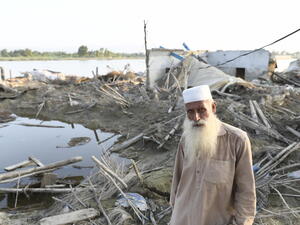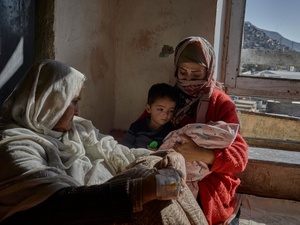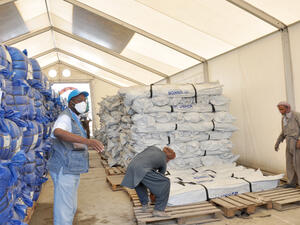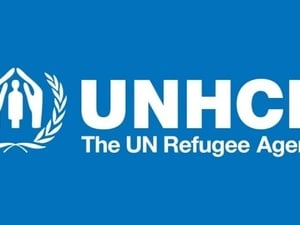Afghanistan: returns begin to tail off
Afghanistan: returns begin to tail off
The number of refugees returning home from Pakistan under the Afghan Transitional Authority / UNHCR initiative has begun to decline in recent weeks. Last week alone we saw a drop of 21 percent in returns from Pakistan from the previous week.
Total returns from the surrounding countries during the month of July numbered more than 303,000 people. This is three-quarters of the number of returnees in May, when 412,738 persons returned to Afghanistan. The number of returnees dropped in June to 292,264, possibly due to a decrease in the assistance package and aid pipeline problems and while Afghans adopted a wait-and-see attitude during the then-ongoing Loya Jirga meeting in Kabul. The number of returnees in March when the programme got underway was more than 121,000, while over 297,000 people returned in April.
To date, we've seen more than 1.4 million people return home under the programme. Among them were 1.3 million refugees from Pakistan and more than 116,000 people returning from Iran. An estimated 200,000 people have returned spontaneously, and our staff at the Torkham border crossing still count some 200 Afghans crossing every day, outside the joint initiative.
At the same time, more than 200,000 internally displaced Afghans (IDPs) have gone home with the help of the humanitarian community, while some 400,000 IDPs have returned spontaneously since the fall of the Taliban. Afghanistan, however, still has 800,000 IDPs, due to the effects of the prolonged drought in the south and insecurity in parts of the country.
Often returnees to Afghanistan appear to favour big cities rather than rural areas.
For example, of the more than 668,000 people who opted to return to Kabul, Nangarhar and Balkh provinces, 53 percent or more than 351,000 went back to urban areas: Kabul city, Jalalabad and Mazar-i-Sharif.
Since last week we've reduced the number of our registration centres in Pakistan and cut back on their operating hours. From 1 August, we closed two registration centres - Azahiel on the edge of Peshawar (NWFP Province) and our Burhan centre near Islamabad that handled refugees from Pakistan's Punjab Province. Our verification centres in Pakistan are now working only five days a week, except for the centre in Baluchistan which is operating only four days a week.
We expect that the number of returnees from Pakistan has peaked and will likely continue to decline over the coming months. Nevertheless, the donor community needs to ensure that reconstruction and development assistance arrives as quickly as possible to meet the myriad needs facing those who have already returned.
UNHCR still faces a $43 million shortfall in its $271 million budget for the Afghanistan crisis.









